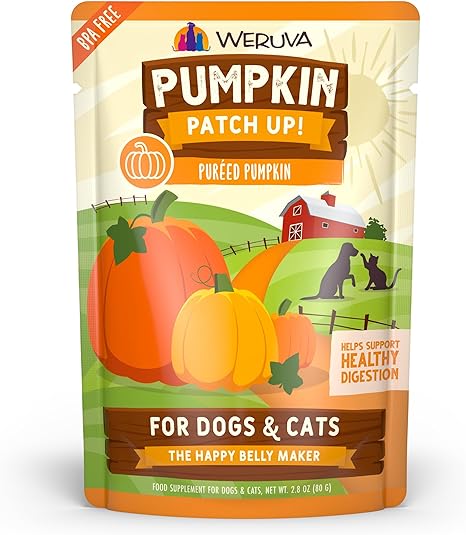Essential Guide: 10 Superfoods to Give Your Dog
Post Disclaimer
We may earn a commission for purchases made using our links. Please see our Disclaimer to learn more.
Top 10 Superfoods to Give Your Dog Today
Key Highlights
- Superfoods are nutrient-dense foods that can provide numerous health benefits for dogs.
- superfoods in your dog’s diet can support the immune system, digestive system, and overall health.
- Some key superfoods for dogs include blueberries, salmon, sweet potatoes, pumpkin, eggs, kale, apples, chia seeds, carrots, and quinoa.
- Safely introducing superfoods into your dog’s diet involves assessing their current health and diet, consulting with a veterinarian, and gradually incorporating superfoods into their meals.
- Adding superfoods to your dog’s diet can be a delicious and nutritious way to support their well-being.
- Remember to feed superfoods in moderation and consult a veterinarian for personalized dietary guidance for your dog.
Introduction
Superfoods benefit both humans and pets. Including them in your dog’s diet can enhance their health by providing essential nutrients. Superfoods contain vitamins, minerals, antioxidants, and beneficial compounds that support your dog’s immune system, digestion, coat health, and overall well-being.
When choosing superfoods for your dog, ensure they are safe and nutritious. Explore 10 superfoods your dog will enjoy blueberries, salmon, sweet potatoes, pumpkin, eggs, kale, apples, chia seeds, carrots, and quinoa. Introduce new foods gradually and consult your vet to tailor the diet to your dog’s needs for optimal health. Here is a list of superfoods that are safe for dogs, ranging from fruits and vegetables to seafood and farm products, to help you make the best choices for your furry friend’s diet. Don’t forget to add these superfoods to your dog’s food bowl for a healthy and happy pup!
10 Must-Have Superfoods for Your Canine Companion
Regarding superfoods for dogs, 10 must-have options can provide various health benefits. These superfoods include blueberries, salmon, sweet potatoes, pumpkin, eggs, kale, apples, chia seeds, carrots, quinoa, broccoli, and acai berries. These superfoods are packed with essential nutrients that can support your dog’s overall health and well-being. Incorporating these superfoods into their diet can help boost their immune system, improve digestion, promote a healthy coat, and provide them with vital vitamins and minerals.
1. Blueberries: Nature’s Antioxidants for Dogs
Blueberries are rich in antioxidants and vitamin C, benefiting dogs’ cells and immune systems. They are low in calories and high in fiber, making them a healthy snack option for weight-conscious dogs. Serve blueberries as treats, mix them with food, or blend them into a doggie smoothie with yogurt. Feed in moderation, especially if your dog has health issues – consult your vet before incorporating berries into their diet. Blueberries are a superfood for dogs, providing nature’s antioxidants and a great source of fiber to support intestinal health and keep them healthy and happy.
2. Salmon: Omega-3 Rich Superfood for Healthy Coats
Salmon is a superfood rich in omega-3 fatty acids for your dog’s health. It promotes a healthy coat, reduces inflammation, and supports muscle development. Opt for wild-caught salmon cooked thoroughly as an occasional treat after consulting your vet.
3. Sweet Potatoes: Vitamins A, C, and Fiber for Digestion
Sweet potatoes are a superfood for dogs, rich in vitamins A and C. They support healthy eyes, boost the immune system and aid digestion. The soluble fiber helps regulate bowel movements and can prevent constipation. Low in fat and calories, sweet potatoes make a nutritious snack. Cook them thoroughly before feeding to your dog as a stand-alone treat, mixed into regular food, or as an ingredient in homemade treats. Remember to consult your vet before introducing new foods to your dog’s diet.
4. Pumpkin: Natural Digestive Aid and Nutrient Booster
Pumpkin is a natural digestive aid and nutrient booster for dogs. It’s rich in soluble fiber, regulating digestion and preventing issues like diarrhea or constipation. The soluble fiber absorbs water, making stool easier to pass and promoting a healthy digestive tract.
Besides aiding digestion, pumpkin provides essential nutrients like vitamins A, C, and E, potassium, and iron for your dog’s overall health.
When feeding pumpkin to your dog, opt for plain, canned pumpkin without added spices or sugars. Serve it as a treat or mix it into their regular food. Consult your vet before introducing new foods into your dog’s diet.
5. Eggs: High-Quality Protein and Essential Amino Acids
Eggs are a superfood for dogs, providing high-quality protein and essential amino acids. They support muscle development and immune health and provide vital nutrients like vitamin B12 and selenium. When feeding eggs to your dog, ensure they are cooked thoroughly to prevent bacterial contamination. Introduce eggs gradually, and consult your vet before making any dietary changes.
6. Kale: Loaded with Vitamins and Low in Calories
Kale is a nutritious superfood for dogs, rich in vitamins and low in calories. It supports the immune system and bone health and provides antioxidants. Serve kale in moderation by removing stems and chopping leaves into small pieces for easy digestion. You can also sauté kale in a little olive oil for added health benefits and mix it into your dog’s food. Consult your vet before introducing it into your dog’s diet.
7. Apples (without seeds): Vitamins A and C Plus Fiber
Apples are a superfood for dogs, providing vitamins A and C, fiber, and hydration. Remove seeds and core to prevent choking hazards. Serve as treats or mix into regular food in small pieces. Feed in moderation to avoid digestive issues. Consult your vet before making dietary changes for your dog.
8. Chia Seeds: Omega-3 Fatty Acids for a Healthy Coat
Chia seeds, a superfood rich in omega-3 fatty acids, promote healthy skin and fur in dogs by reducing inflammation and itching. They also provide fiber, protein, and antioxidants for overall health.
Soak chia seeds before feeding to aid digestion. Sprinkle over regular food or mix into treats. Feed in moderation to avoid digestive issues. Consult your vet before introducing chia seeds to your dog’s diet.
9. Carrots: Crunchy Treats Rich in Beta-Carotene
Carrots are crunchy treats rich in beta-carotene, supporting your dog’s eye health and immune system. These vibrant veggies are packed with beneficial nutrients, including vitamins and soluble fiber, aiding digestion and overall well-being. Incorporating carrots into your dog’s diet can provide a low-calorie snack rich in antioxidants and essential vitamins. Including carrots in your dog’s meals can be a simple yet nutritious way to boost their health and keep them happily munching away.
10. Quinoa: Gluten-Free Source of Protein and Fiber
Quinoa, a gluten-free superfood, provides dogs with protein and fiber. It’s a complete protein source containing essential amino acids for optimal health. Additionally, quinoa supports digestive health due to its high fiber content and is rich in vitamins and minerals like iron, magnesium, and phosphorus.
When feeding quinoa to your dog, ensure it’s thoroughly cooked for easy digestion. After consulting with your veterinarian, you can serve it as a standalone treat or mix it into your dog’s regular food.
How to Safely Introduce Superfoods into Your Dog’s Diet
Safely introducing superfoods into your dog’s diet involves assessing their current health and diet, consulting with a veterinarian, and gradually incorporating superfoods into their meals. It’s important to determine if your dog has any underlying health conditions or dietary restrictions that may affect their ability to tolerate certain superfoods.
Start by introducing small amounts of superfoods and monitor your dog’s response. Gradually increase the amount over time, ensuring your dog tolerates the new food well. If you notice any digestive upset or allergic reactions, discontinue feeding the superfood and consult with your veterinarian.
Assessing Your Dog’s Current Health and Diet
Before introducing superfoods into your dog’s diet, assessing their current health and diet is important. Consider any underlying health conditions or dietary restrictions that may affect their ability to tolerate certain superfoods.
If you have any concerns about your dog’s health or if they have any pre-existing medical conditions, it’s important to consult with a veterinarian before making any changes to their diet. A veterinarian can provide personalized dietary guidance based on your dog’s specific needs and help ensure that superfoods are introduced safely and effectively.
Pet parents should also consider their dog’s overall diet and ensure that it is balanced and nutritionally complete. Superfoods should be incorporated into regular meals in moderation and should not replace a well-balanced diet.
Incorporating New Foods Gradually to Avoid Digestive Upset
When introducing new foods to your dog’s diet, it is important to do so gradually. Dogs have sensitive digestive systems, and sudden changes in their diet can lead to digestive upset, such as diarrhea. Add small amounts of the new superfood to your dog’s regular food to avoid this. Monitor their response and gradually increase the amount over time. This gradual approach allows their digestive system to adjust to the new food and reduces the risk of adverse reactions. Additionally, always feed superfoods in moderation. While they provide numerous health benefits, too much of a good thing can still be harmful. Consult with your veterinarian to determine the appropriate amount of superfoods to incorporate into your dog’s diet and to discuss any specific dietary concerns your dog may have.
The Benefits of Superfoods for Dogs
Superfoods offer a wide range of benefits for dogs. They are packed with essential nutrients, antioxidants, and beneficial compounds that can support your dog’s overall health. Incorporating superfoods into your dog’s diet can enhance their immune system, promote healthy skin and a shiny coat, support digestive health, and provide them with vital energy and vitality. Superfoods are nutrient-dense, meaning they provide a high level of beneficial nutrients in a smaller portion, making them a great addition to meet a dog’s nutritional needs and fuel their development and growth. By including these superfoods, such as Nori and Kelp, which are types of seaweed, in moderation and consulting with your vet, you can help your dog thrive and lead a healthy and happy life with the help of pet supplements.
Enhancing Immune System Function
Superfoods are known for enhancing the immune system function in dogs. They contain high levels of antioxidants, which help protect the cells in your dog’s body, including the dog’s body, from damage caused by harmful free radicals. Antioxidants, such as vitamins A and E, beta-carotene, and phytonutrients, help boost your dog’s immune system, making them more resistant to diseases and infections. Superfoods like dark, leafy greens, which are rich in phytonutrients and vitamins, have been shown to reduce the risk of certain cancers and promote brain health. Incorporating these immune-boosting superfoods, including leafy greens, into your dog’s diet can help support their overall health and well-being.
Promoting Healthy Skin and Coat
Superfoods can also promote healthy skin and a shiny coat in dogs. Many superfoods, such as oily fish like anchovies and sardines, are rich in essential fatty acids like omega-3. These fatty acids are crucial in maintaining healthy skin and a lustrous coat. They help reduce inflammation, moisturize the skin, and promote a healthy coat by preventing dryness and excessive shedding. Superfoods like chia seeds, which are also high in omega-3 fatty acids and can act as an alternative source of fish oil, can further contribute to healthy skin and coat. By incorporating these superfoods into your dog’s diet, such as coconut oil, you can help them achieve and maintain a shiny, healthy coat and skin, including their dog’s skin.
Supporting Digestive Health
Superfoods can support digestive health in dogs by providing essential nutrients and promoting a balanced gut flora. Superfoods like pumpkin, which is high in soluble fiber, can help regulate digestion and prevent diarrhea and constipation. Soluble fiber acts as a prebiotic, nourishing beneficial bacteria in the gut and promoting a healthy digestive system. Additionally, superfoods like yogurt, which contains probiotics, introduce good bacteria into the gut, further supporting digestive health and nutrition. Bone broth, another superfood, contains collagen and other compounds that can help support joint health and slow or halt the progression of degenerative joint diseases like hip dysplasia and arthritis. Incorporating these superfoods into your dog’s diet can help maintain a healthy digestive system and prevent digestive issues.
Boosting Energy and Vitality
Superfoods can provide dogs with the energy and vitality they need to thrive. These nutrient-dense foods are packed with essential vitamins, minerals, and antioxidants that can boost energy levels and support overall vitality. Superfoods like sweet potatoes, which are high in carbohydrates, provide a steady energy source for active dogs. They also contain essential nutrients like vitamin C and B vitamins, which play a crucial role in energy production. Incorporating these superfoods into your dog’s diet can help them maintain high energy levels, improve overall vitality, and support their active lifestyle.
DIY Superfood Recipes Your Dog Will Love
If you want to add variety to your dog’s diet, why not try making DIY superfood recipes? These homemade treats can give your dog all the nutritional benefits of superfoods in a delicious and enjoyable form. For example, you can make homemade pumpkin dog treats using canned organic pureed pumpkin, which is rich in antioxidants, fiber, and essential vitamins and minerals. Another option is to create blueberry frozen yogurt bites for dogs using plain yogurt and fresh blueberries packed with antioxidants and probiotics. You can also try making a sweet potato and salmon dog food mix, combining the nutritional benefits of sweet potatoes and omega-3 fatty acids from salmon. Additionally, you can incorporate turmeric into your dog’s diet by making homemade turmeric and chicken broth treats, as turmeric is known for its anti-inflammatory and antioxidant properties. These DIY superfood recipes, including the use of turmeric, are a great way to provide your dog with a nutrient-rich and tasty diet.
Homemade Pumpkin Dog Treats
Homemade Pumpkin Dog Treats are a healthy and delicious way to incorporate superfoods into your dog’s diet. Pumpkin is a nutrient-rich superfood that offers numerous health benefits for dogs. Here’s a simple recipe to make homemade pumpkin dog treats:
Ingredients:
- 1 cup canned organic pureed pumpkin
- 1/2 cup coconut flour
- 2 eggs
Instructions:
- Preheat your oven to 350°F (175°C) and line a baking sheet with parchment paper.
- Mix the canned organic pureed pumpkin, coconut flour, and eggs in a bowl until well combined.
- Roll the mixture into small balls and place them on the lined baking sheet.
- Flatten each ball with a fork to create a cookie shape.
- Bake for 20-25 minutes or until golden brown.
- Allow the treats to cool completely before serving.
Additional Tips:
- Store the homemade pumpkin dog treats in an airtight container in the refrigerator for up to a week.
- Feed the treats in moderation as part of a balanced diet.
Blueberry Frozen Yogurt Bites for Dogs
Blueberry Frozen Yogurt Bites are a refreshing and nutritious treat for dogs. Blueberries are packed with antioxidants and probiotics, making them an excellent choice for a superfood treat. Here’s a simple recipe to make blueberry frozen yogurt bites for dogs:
Ingredients:
- 1 cup plain yogurt
- 1/2 cup fresh blueberries
Instructions:
- Blend the plain yogurt and fresh blueberries in a blender or food processor until smooth.
- Pour the mixture into ice cube trays or silicone molds.
- Freeze the trays or molds for at least four hours or until solid.
- Once frozen, remove the blueberry frozen yogurt bites from the trays or molds.
- Serve the treats to your dog as a refreshing and nutritious snack.
Additional Tips:
- Store the blueberry frozen yogurt bites in an airtight container in the freezer for up to a month.
- Feed the treats in moderation as part of a balanced diet.
Sweet Potato and Salmon Dog Food Mix
Sweet Potato and Salmon Dog Food Mix is a nutrient-rich meal that combines the health benefits of sweet potatoes and omega-3 fatty acids from salmon. Here’s a simple recipe to make sweet potato and salmon dog food mix:
Ingredients:
- 2 cups cooked sweet potatoes
- 1 cup cooked salmon (boneless and skinless)
Instructions:
- In a bowl, mash the cooked sweet potatoes until smooth.
- Flake the cooked salmon into small pieces and mix it with the mashed sweet potatoes.
- Serve the sweet potato and salmon dog food mix to your dog as a nutritious meal.
Additional Tips:
- Adjust the portion sizes based on your dog’s size and dietary needs.
- Consult with your veterinarian to ensure the ingredients and proportions suit your dog’s specific dietary requirements.
Conclusion
Incorporating superfoods into your dog’s diet can greatly benefit their overall health and well-being. From blueberries to salmon, these nutrient-packed foods offer a range of advantages, such as improved immunity, healthy skin, digestion support, and increased energy levels. Remember to introduce new foods gradually and consider your dog’s individual needs. Explore our DIY recipes for tasty treats your furry friend will love. Remember the FAQs to ensure you make the best choices for your dog’s diet. Treat your canine companion to a diet rich in superfoods to enhance their quality of life.
Frequently Asked Questions
What are the safest superfoods to start with for dogs?
Blueberries, pumpkin, sweet potatoes, and chia seeds are the safest superfoods for dogs to start with. However, it is always important to consult with your veterinarian before introducing new foods to your dog’s diet, especially if the dog has any allergies or dietary restrictions.
How often should I feed my dog these superfoods?
The frequency of feeding your dog these superfoods depends on their size and dietary needs. As a general guideline, superfoods should be fed in moderation, and their calorie intake should be considered. Consult with your veterinarian to determine the appropriate amount and frequency of feeding superfoods based on your dog’s specific needs.
Can all breeds of dogs eat the same superfoods?
While many superfoods are safe for all dog breeds, it is important to consider their individual nutritional needs and any specific allergies or sensitivities they may have. Consult with your veterinarian to ensure that the superfoods you choose suit your dog’s breed and dietary requirements.
Are there any superfoods that dogs should avoid?
Yes, there are some superfoods that dogs should avoid. Foods like garlic, macadamia nuts, and dark chocolate can be toxic to dogs and should never be fed to them. Always check with your veterinarian to ensure the safety of the superfoods you choose for your dog.
How can I tell if my dog is allergic to a superfood?
- If you suspect your dog may be allergic to a particular superfood, look for symptoms such as itching, skin rashes, gastrointestinal upset, or respiratory issues.
- If you suspect your dog is allergic to a specific superfood, consult your veterinarian to determine the best action.
Is it possible to overfeed superfoods to dogs?
- While superfoods can provide many health benefits, feeding them in moderation is important.
- Overfeeding superfoods can lead to an imbalance in your dog’s diet, potential weight gain, or other health issues.
- Always consult your veterinarian to determine the appropriate amount of superfoods for your dog’s diet.






